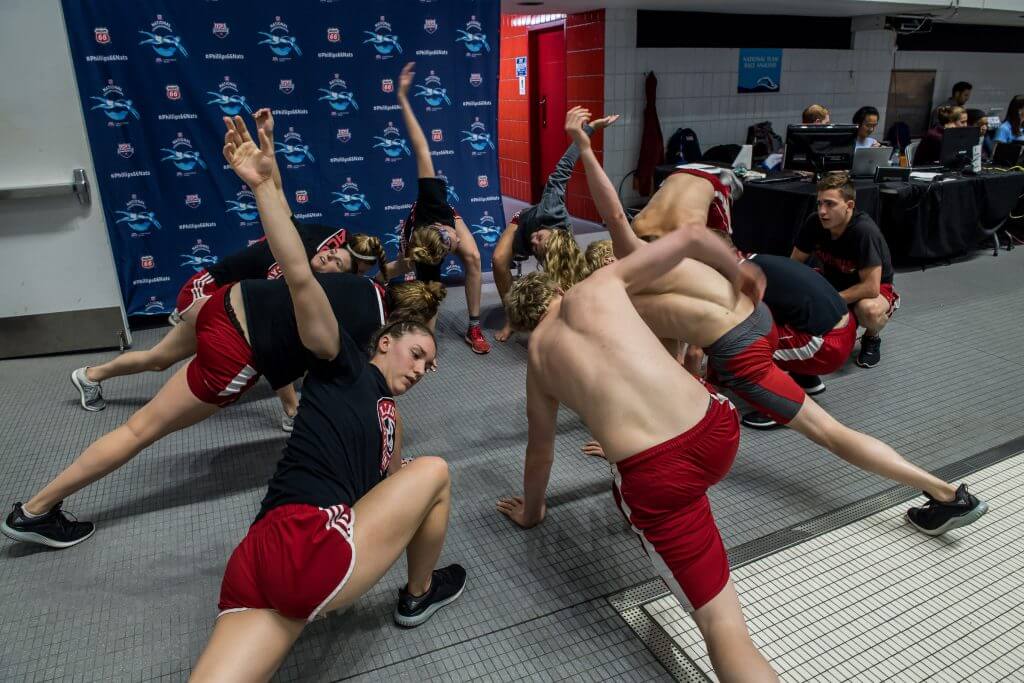Wellness Wednesday: Avoiding Injuries 101 – How Stretching Can Save Your Season (Videos Included)

Avoiding Injuries 101: How Stretching Can Save Your Season (Videos Included)
There’s no feeling in swimming that’s as frustrating as being injured. All the accomplished work seems to go to waste. Practice devolves into a lot of kicking at best, or staying at home at worst. Luckily, adding these stretching methods into warmups can prevent many of the most common swimmer overuse injuries. Any stretches that are mentioned will have a video link with a demonstration down below.
Prevention Methods for Freestyle Overuse Injuries
The most common type of overuse injuries come from doing freestyle, as it is the stroke swimmers do the most often. And, of these injuries, shoulder problems are frequent nuisances for athletes. To prevent shoulder ailments, do exercises like arm circles or robots before getting in the water. If only one shoulder is suffering from overuse, it might be beneficial to start breathing every three during training, as a singular shoulder could be aggravated by a gallop style of freestyle.
Prevention Methods for Breaststroke Overuse Injuries
Breaststroke overuse injuries are also incredibly common. For example, groin and knee aches both appear frequently in breaststrokers. To prevent groin strains, butterfly stretching, 90-90s, and lateral lunges are all recommended. To prevent knee injuries, it is imperative to have a very thorough warmup. Coaches tend to recommend eggbeater kick for this purpose. Rolling out the muscles in the thigh is also extremely helpful as the looser muscles have a lower chance of injury.
Prevention Methods For Some Other Miscellaneous Injuries
Some other ailments to be aware of are back and neck injuries. Back injuries are tricky as the best remedy is to not aggravate it further. Make sure to not do anything that hurts the back. However, make sure to work on core stability (e.g. dead bugs or bird dogs) and lower body stretches (e.g. sit and reach) so the muscles stay loose but stable in the surrounding area. For neck injuries, try to keep the trapezius muscles loose by performing upper trap stretches.
In conclusion, all injured athletes wish they could have prevented their injury. In some cases, injuries are unavoidable, but some aren’t, and it’s important that as athletes we do everything in our power to keep our body in top shape. It’s better take the time and do the stretches now rather than taking the time later immobilized in bed.
All commentaries are the opinion of the author and do not necessarily reflect the views of Swimming World Magazine nor its staff.
Video Examples of Stretches
Arm Circles
Butterfly
90-90s
Eggbeater Kick
Dead Bugs
Bird Dogs
One example of an Upper Trap Stretch



